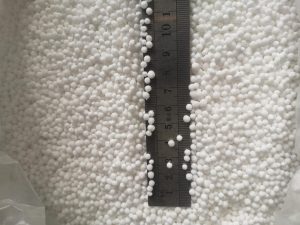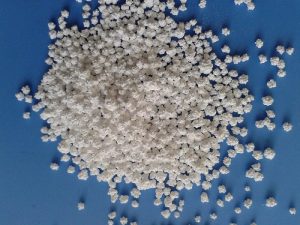What Are The Differences Between Dihydrate And Anhydrous Calcium Chloride?
Dihydrate calcium chloride (CaCl2•2H20), contains about 20% chemically combined water, known as water of crystallization. Anhydrous calcium chloride (CaCl2), contains no water of crystallization.
Calcium Chloride Dihydrate, chemical formula CaCl2·2H2O, CAS No.10035-04-8, has a molecular weight of 147.0 g/mol, while pure CaCl2 has a molecular weight of 110.98 g/mol. This means the dehydrate is theoretically at most: (110.98 g/mol/147 g/mol x 100%) = 75.50 % calcium chloride. But in the real world, it varies from 74% to 80%.
Calcium Chloride Anhydrous, chemical formula CaCl2, CAS No.10043-52-4. Anhydrous means without water, especially water of crystallization. Thus Anhydrous calcium Chloride simply has a higher overall amount of calcium by weight. In the real world, it varies from 90% to 98%
Since the anhydrous calcium chloride easily absorbs moisture from the atmosphere, Anhydrous is not the most common form in the natural world. Dihydrate Calcium Chloride also absorbs moisture by nature, however to a lesser extent than anhydrous Calcium Chloride.
Weifang Bell Chemical Co., Ltd is a China professional calcium chloride producer. We manufacture Dihydrate Calcium Chloride and Anhydrous Calcium Chloride. Please contact us at sales@bellchem.cn for more Calcium Chloride knowledge.

